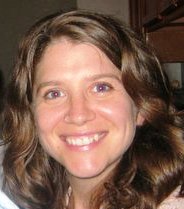
Nora Kropp
Midwife, Researcher and Advocate with the Bangalore Birth Network in India
Master of Public Health Degree (Maternal and Child Health), UNC-Chapel Hill
Please share the factors and/or people that (who) inspired you to pursue your area of graduate study.
When I was an undergraduate, I took a medical anthropology class with Dr. James Quesada at the University of California, San Francisco. At the end of the term, Professor Quesada provided written encouragement for me to go on to graduate school. Before his suggestion, the thought of going to graduate school had never entered my mind, as no one in my family had earned a higher degree. My medical anthropology professor planted the seed.
After my undergraduate degree, I attended midwifery school where one of the midwifery professors presented statistical data about calculating risk. She told us she had a degree in public health. I knew at that moment I wanted to pursue a master’s degree in public health. However, at a time when my peers were getting married and buying houses, I realized getting a graduate degree would mean taking on student debt and putting off serious earnings for a few more years. I called my mother to discuss my decision to go to graduate school. My mother, who had a long, satisfying career as a nurse, told me I would not be satisfied doing what others are doing and to go ahead with my plan to attend UNC. In my case, a few people made a big difference in inspiring my decision about my future!
Please describe your favorite memories as a graduate student at UNC-Chapel Hill.
Honestly, my favorite memories of UNC were of the people. My graduate school housemates were from South Africa, Jamaica and India. We had the greatest house parties with lots of varied music, dancing and FOOD! In my larger circle of friends, I cooked meals, played sports and traveled with fellow graduate students and scientists from Europe, Latin America, Asia and Africa.
We learn so much from our peers. My peers challenged my worldview. Today, many of my friends from UNC are an important part of my personal and professional support system. I have worked closely on international projects with some of them and definitely follow and admire the work of all of them. Their support and friendship is what stays with me. Oh! And let’s not forget, included in this group of friends was my future husband! We have two beautiful daughters and will celebrate our 10th wedding anniversary next year. So the people I met while at UNC – definitely top of the list for me!
What aspects of your graduate studies are most useful in your current professional role?
Before graduate school, I worked in clinical settings and provided home-based midwifery care. After graduate school, my work has focused on research and advocacy. I have small children now and choose to both not be clinically active and on call while they are young. Having a degree in public health has given me the flexibility to remain active in the field of maternal health, while not having to commit to the long hours associated with directly caring for laboring and birthing women.
While in a clinical role, I saw many clinical practices I questioned, such as the effectiveness of lying on one’s back during the pushing phase of labor. I also witnessed common but not well understood physiological phenomena that I wanted to get to the root of (for example, why does labor begin?). With a clinical degree, I was able to help women and families one-on-one. That is incredibly satisfying, but I was not able to address the larger, unanswered questions hovering in my field. These questions gnawed at me. Being able to understand the scientific literature in my field and design appropriate studies to address unanswered questions are two of the most valuable tools I took from grad school that I use in my work today.
Please describe the most significant aspects of your work.
When I came to live in India nine years ago, my newly adopted city, Bangalore, and the country as a whole did not have comprehensive resources for women seeking India-specific information about normal physiological birth. Like many areas of the world and like most urban centers in India, the birthing culture has become highly and unnecessarily medicalized without due consideration of the short- and long-term effects of medicalization and without consideration of the experiences of the women, babies or families.
In the last decade in India there have been government initiatives to move all births into institutions, but the institutions are not able to handle the increasing patient loads, and poor quality of care puts mothers and babies at risk. Lack of proper informed consent is also a big concern.
In response, I worked with fellow concerned professionals and citizens to establish advocacy groups: the Bangalore Birth Network and Birth India. Both groups promote respectful and evidence-based care during pregnancy, birth and postpartum. Raising consumer and professional awareness is key to making systematic changes. We make evidence-based information and advocacy tools accessible to birthing mothers, their families and professionals. Networking is a key aspect of our work. Bringing like-minded people together strengthens the weight of the demand for respectful and evidence-based maternity care and raises the confidence of families and professionals in pursuit of such care.
Do you have advice for current UNC-Chapel Hill graduate students?
My advice to current students is to take advantage of the internships and volunteer opportunities one can avail with UNC support. When outside of the university support system, finding internships is more difficult and competitive. Currently, with such a tough job market, the more practical experience you have, the better. Throughout my 20s, I did lots of volunteer work and internships, and it paid off! When it came time for a full-time, salaried position, I had real skills and experience to bring to the table.
